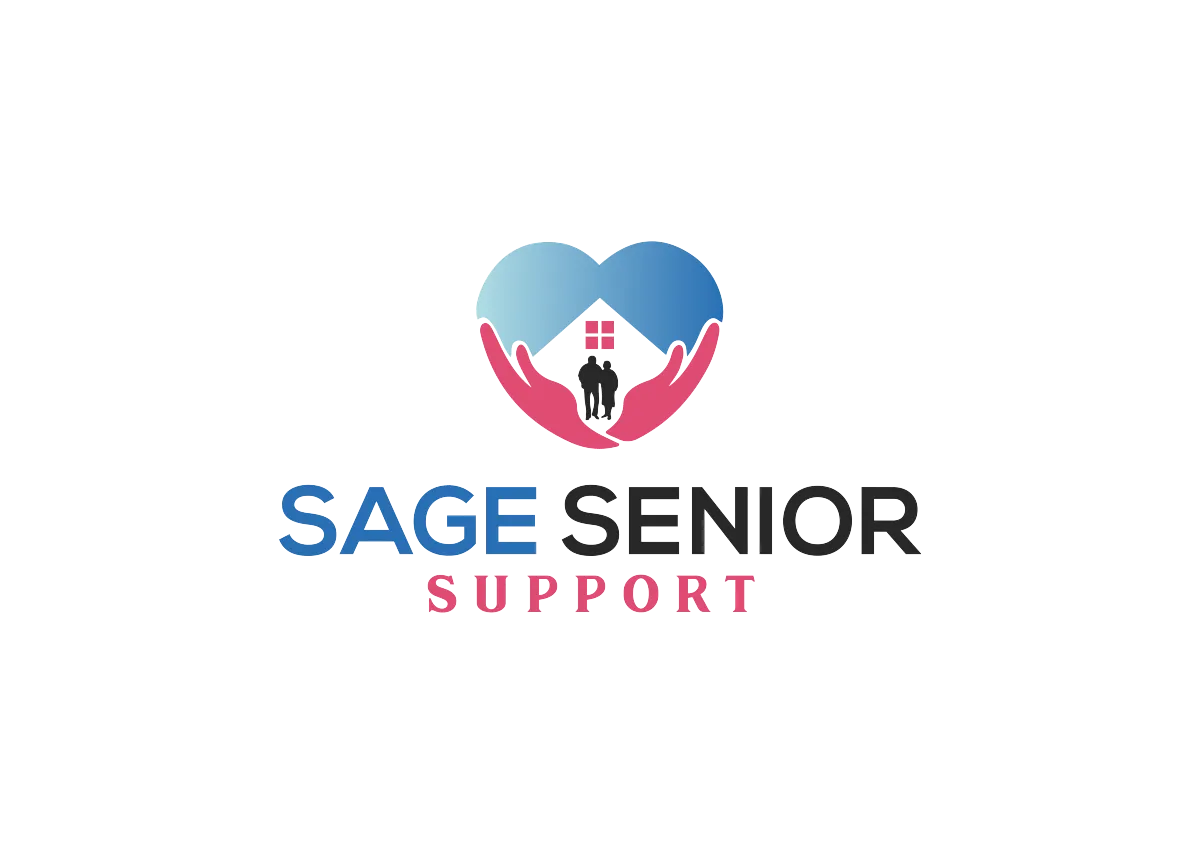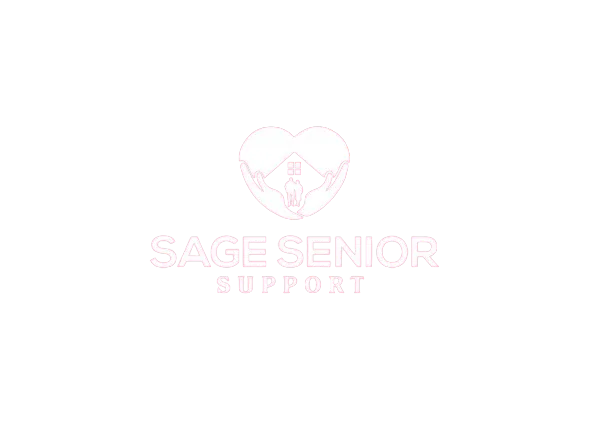
The Hard Truth: When Elderly Parents' Safety Means a Move
Are you noticing warning signs like frequent falls, medication confusion, or unsafe living conditions in your parent's home? Making the difficult decision to move them is an act of love that prioritizes their safety, not a failure.
Key Takeaways
Recognizing when a parent can no longer safely live at home is crucial for their wellbeing, with warning signs including frequent falls, medication management issues, and unsafe living conditions.
The decision to move a parent from their home is emotionally challenging, with adult children commonly experiencing guilt, fear, doubt, and a sense of overwhelming responsibility.
Physical warning signs you must notice include mobility challenges, significant weight loss, and wandering behaviors that put your loved one at risk.
Sage Senior Support helps families through the difficult transition when a parent's safety requires moving from their longtime home.
Making the decision to move a parent is an act of love rather than failure, prioritizing their safety and quality of life.
Your Gut Was Right: Recognizing When Home Is No Longer Safe
That feeling in the pit of your stomach isn't just worry—it's your instinct telling you something important. When concerns about your aging parent's safety at home have moved from occasional thoughts to constant anxiety, it's time to listen to that inner voice.
Sage Senior Support understands that recognizing this reality is one of the hardest moments in an adult child's life. The signs have likely been accumulating for months, perhaps years. Maybe you've been making excuses or hoping things would improve, but deep down, you know the truth: your parent's home is no longer the safe haven it once was.
This recognition doesn't mean you've failed. It means you're paying attention to what matters most—your loved one's safety and wellbeing. The family home, filled with decades of memories, has become a place of potential danger rather than comfort. When daily activities become struggles and household maintenance falls behind, these aren't just inconveniences—they're warning signals that need attention.
5 Physical Warning Signs That Cannot Be Ignored
1. Frequent Falls and Mobility Challenges
When your phone rings late at night, does your heart race with fear that your parent has fallen again? Falls aren't just accidents—they often indicate declining strength, balance issues, or environmental hazards in the home. A single fall can lead to serious injury, and repeated falls signal a dangerous pattern that could result in life-threatening situations, especially when your parent lives alone.
What makes this particularly frightening is the helplessness you feel when you're miles away and your parent calls from the floor, unable to get up. Each fall increases the risk of fractures, head injuries, and long-term complications that could permanently affect their independence.
2. Inability to Manage Medications Properly
Noticing pills scattered on countertops or finding full medication organizers days after they should have been empty points to a serious safety concern. Medication management isn't just about organization—it's a matter of life and death when conditions like heart disease, diabetes, or hypertension require strict adherence to treatment schedules.
The consequences of medication mismanagement can be severe: accidental overdoses, dangerous drug interactions, or untreated conditions that rapidly worsen. When you realize your parent is regularly missing doses or taking medications incorrectly, it signals a critical decline in their ability to maintain their health independently.
3. Unsafe Living Conditions (Clutter, Disrepair, Hazards)
Walking into your childhood home and finding it transformed by clutter, disrepair, or hazards is a jarring experience. Perhaps there are piles of mail, unwashed dishes, or neglected maintenance creating physical hazards. These conditions aren't merely aesthetic concerns—they represent real dangers, from fire hazards to tripping risks to sanitation issues that can affect health.
Seeing a home that was once well-maintained deteriorate isn't just about the physical space—it's a visible manifestation of your parent's declining ability to manage daily life. Each unfixed leak, unaddressed electrical issue, or cluttered walkway increases the risk of a serious accident.
4. Significant Weight Loss or Physical Decline
When you notice your once-robust parent looking frail, with clothes hanging loosely or a gaunt appearance, it's a clear sign that nutrition has become a problem. Significant weight loss often indicates that shopping for groceries, preparing meals, or even remembering to eat has become challenging. This can rapidly accelerate other health problems and weaken their overall resilience.
The physical changes you observe—whether it's unusual thinness, poor color, or visible weakness—aren't just part of normal aging. They're evidence that your parent is struggling with the basic self-care necessary for health and survival.
5. Wandering or Getting Lost in Familiar Places
Few situations create more terror than receiving a call that your parent has been found disoriented at a grocery store they've shopped at for decades, or learning they've wandered from home in the middle of the night. Wandering behaviors signal serious cognitive changes that put your loved one at immediate risk.
The danger escalates quickly—exposure to weather extremes, traffic hazards, or predatory individuals all become possibilities when a vulnerable adult becomes lost. When your parent can no longer reliably navigate familiar environments, their safety is seriously compromised.
The Invisible Dangers: Cognitive and Emotional Red Flags
1. Increasing Confusion and Memory Issues
The repeated phone calls asking the same question you just answered yesterday. The important appointments missed despite reminders. The inability to follow a familiar recipe or remember how to operate the washing machine. These aren't just frustrating moments—they're windows into cognitive changes that make independent living increasingly dangerous.
When memory issues progress beyond occasional forgetfulness to consistent confusion about fundamental tasks, medications, or safety practices, the risks multiply. Your parent may forget to turn off the stove, lock the doors, or recognize potential dangers.
2. Withdrawal from Formerly Enjoyed Activities
Noticing your sociable mother no longer attends her weekly bridge game or your father has abandoned his lifelong hobby of woodworking can be heartbreaking. Social withdrawal isn't just about changing interests—it often signals depression, anxiety, cognitive decline, or physical limitations that have made these activities too challenging.
This isolation creates a dangerous cycle: as your parent withdraws from social connections, they lose important support systems, mental stimulation, and regular check-ins from others who might notice problems. Their world shrinks, often taking their joy and purpose with it.
3. Paranoia or Concerning Behavioral Changes
When your typically trusting father suddenly accuses the neighbors of stealing, or your rational mother becomes convinced the mail carrier is spying on her, these aren't quirky new personality traits—they're concerning behavioral changes that often accompany cognitive decline. These paranoid thoughts can lead to dangerous situations, from confrontations with others to refusing necessary help.
These behavioral changes are particularly difficult to witness because they transform the parent you've known all your life into someone who seems like a stranger. The accusations, suspicion, or irrational fears can strain relationships and create unsafe situations.
4. Struggle with Basic Daily Tasks
Realizing your parent can no longer manage everyday activities like bathing, dressing, or preparing simple meals is a turning point in recognizing their vulnerability. Activities of daily living (ADLs) are fundamental to independent living, and when these become overwhelming challenges, safety and health are immediately compromised.
The progression is often subtle—perhaps they've switched to only wearing easily managed clothing, or they're relying exclusively on microwaveable meals. But these adaptations eventually reach their limits, and basic needs go unmet.
5. Signs of Depression or Anxiety
Unexplained tears, expressions of hopelessness, constant worry, or statements about being a burden are emotional red flags that shouldn't be dismissed as just "having a bad day." Depression and anxiety in seniors can be dangerous, leading to neglect of health needs, isolation, and even thoughts of self-harm.
These emotional struggles often remain hidden as parents try to maintain their dignity and independence. But they can severely impact judgment, motivation for self-care, and overall safety.
When It's About Your Wellbeing Too
• The Reality of Caregiver Burnout
The constant worry, the middle-of-the-night phone calls, the juggling of your parent's needs with your own family and work responsibilities—caregiving takes a tremendous toll. Caregiver burnout isn't just feeling tired; it's a state of physical, emotional, and mental exhaustion that can lead to serious health consequences for you.
Recognizing the signs in yourself is crucial: persistent fatigue, withdrawal from activities you once enjoyed, irritability, changes in sleep patterns, and feeling overwhelmed. These aren't signs of weakness—they're your body and mind telling you that the current situation isn't sustainable.
• Impact on Your Own Health and Family
The statistics are sobering: family caregivers experience higher rates of depression, anxiety, compromised immune systems, and chronic conditions. Your own health matters too, not just for your sake but for everyone who depends on you.
Your relationships also suffer when caregiving consumes your life. Your children miss your presence at important events, your partner feels neglected, and friendships fade from neglect. Sometimes, the most responsible decision is acknowledging that your parent needs more care than you can realistically provide.
• When Geographic Distance Makes Daily Care Impossible
Living hours or states away from your aging parent creates a particularly challenging caregiving situation. The guilt of not being physically present combined with the anxiety of not knowing what's happening day-to-day can be overwhelming.
Long-distance caregiving often means relying on neighbors, friends, or paid helpers who may not have the same investment in your parent's wellbeing. When safety concerns emerge, the geographic distance makes it nearly impossible to provide the consistent oversight needed.
Navigating the Guilt That Comes With Difficult Decisions
• Why This Guilt Is Nearly Universal
The guilt you feel about considering a move for your parent is shared by virtually every adult child facing this decision. It stems from deeply held beliefs about family responsibility, promises to keep parents at home, and fears of causing your parent pain.
This guilt can be paralyzing, causing you to delay necessary decisions until a crisis forces your hand. Understanding that these feelings are normal can help you move past them to make clearheaded choices based on safety and wellbeing rather than emotion alone.
• Reframing the Decision as an Act of Love
Moving your parent from their home isn't about giving up or taking the easy way out—it's often the most loving choice you can make. When their safety is at risk, providing them with an environment that offers appropriate support is an expression of deep care and concern.
Many adult children report that after the initial adjustment period, they see improvements in their parent's health, socialization, nutrition, and overall quality of life. What felt like a heartbreaking decision often becomes visibly the right one as your parent begins to thrive with proper support.
• Managing Family Disagreements About Care
Few family challenges create more conflict than disagreements about an aging parent's care. Siblings often have different perspectives on the severity of the situation, different capacities to help, and different relationships with the parent in question.
Handling these disagreements requires open communication, shared information about the actual risks and incidents, and sometimes the involvement of neutral third parties like geriatric care managers who can provide objective assessments.
Financial Considerations That Can't Be Ignored
• Understanding Current and Future Care Costs
The financial reality of senior care can be daunting. From in-home care (averaging $20-30 per hour) to assisted living ($3,000-7,000 monthly) to nursing facilities ($7,000-15,000 monthly), the costs quickly become significant for all but the wealthiest families.
Thinking long-term is essential. A parent might need increasing levels of care over time, and planning only for immediate needs can lead to financial crisis later. Understanding all potential costs helps you make sustainable decisions.
• Options for Leveraging Home Equity
For many seniors, their home represents their largest asset. When safety requires a move, converting that home equity into funds for care becomes a crucial consideration. Options include selling the home outright, reverse mortgages, or bridge loans that provide funds while the home is on the market.
Sage Senior Support helps families through this process with care, understanding that the family home represents more than just financial value—it holds decades of memories and emotional significance.
• Insurance and Benefits That May Help
Many families aren't aware of all the financial resources that might help with senior care costs. These can include long-term care insurance, Veterans Aid and Attendance benefits for those who served, Medicare coverage for limited skilled nursing, and Medicaid for those who qualify financially.
Finding your way through these complex systems often requires professional guidance, but the financial relief they provide can make appropriate care possible when it seemed out of reach.
Creating a Compassionate Transition Plan
• The Initial Conversation Approach
How you approach the conversation about moving makes a tremendous difference in how it's received. Choosing the right time (when everyone is calm, not during a crisis), the right setting (private, comfortable), and the right approach (collaborative rather than dictatorial) sets the stage for a more productive discussion.
Leading with love and concern rather than frustration or impatience helps your parent understand that this conversation comes from care, not convenience. Allowing them as much control and input as safely possible preserves dignity in a challenging transition.
• Finding the Right New Living Situation
Not all senior living options are created equal, and finding the right match for your parent's needs, personality, and preferences is crucial for a successful transition. This might mean visiting multiple communities, asking detailed questions about care levels, social activities, and policies, and arranging trial stays when possible.
The goal isn't just finding a place that meets physical care needs, but one where your parent can continue to find meaning, connection, and appropriate levels of independence within a safer framework.
• Handling the Family Home With Care
The family home represents decades of memories, achievements, and life experiences. Approaching its sale with sensitivity acknowledges the emotional weight of this transition. Sorting through belongings, deciding what to keep, donate, or discard, and preparing the home for sale can be overwhelming tasks laden with emotion.
Sage Senior Support understands that this isn't just a real estate transaction—it's the closing of a significant life chapter. Their approach honors the emotional aspects while handling the practical details of preparing and selling the home.
When Safety Trumps Sentiment: Finding Peace in Your Decision
At some point, the evidence becomes clear: your parent's safety must take priority over the sentimental attachment to independent living or the family home. Making this decision from a place of love rather than convenience gives you the foundation for peace with your choice.
Remember that you're not taking something away—you're providing something essential: safety, appropriate care, and the dignity that comes from having needs properly met. The guilt, fear, and doubt that accompany this decision are normal, but they don't mean you're making the wrong choice.
Counting the cost of inaction—the falls that could lead to permanent disability, the medication errors that could cause serious harm, the isolation that diminishes quality of life—helps put the decision in perspective. Sometimes the hardest choices are the most necessary ones.
When you're ready to take this difficult but loving step for your parent, Sage Senior Support provides compassionate guidance through every aspect of senior transitions, from finding the right care to handling the family home with dignity and respect.


